Transcend SSD340 (256GB) Review
by Kristian Vättö on August 4, 2014 5:00 AM ESTRandom Read/Write Speed
The four corners of SSD performance are as follows: random read, random write, sequential read and sequential write speed. Random accesses are generally small in size, while sequential accesses tend to be larger and thus we have the four Iometer tests we use in all of our reviews.
Our first test writes 4KB in a completely random pattern over an 8GB space of the drive to simulate the sort of random access that you'd see on an OS drive (even this is more stressful than a normal desktop user would see). We perform three concurrent IOs and run the test for 3 minutes. The results reported are in average MB/s over the entire time.
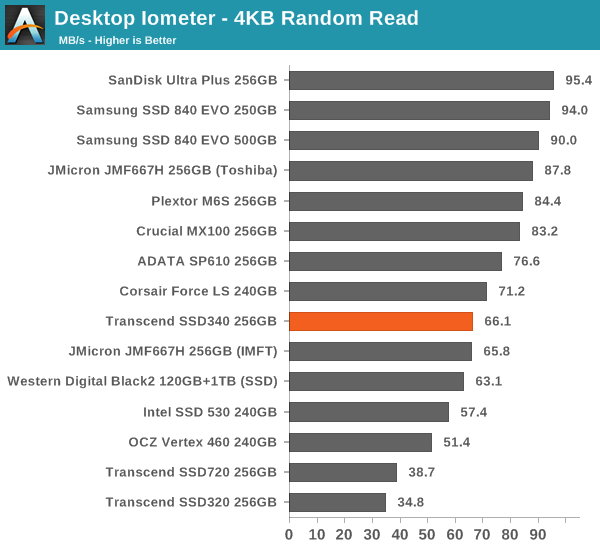


Random performance is okay and similar to the other JMF667H SSDs. Queue depth scaling has never been JMicron's strength but then again typical client workloads do not usually go above queue depth of 5 anyway.
Sequential Read/Write Speed
To measure sequential performance we run a 1 minute long 128KB sequential test over the entire span of the drive at a queue depth of 1. The results reported are in average MB/s over the entire test length.
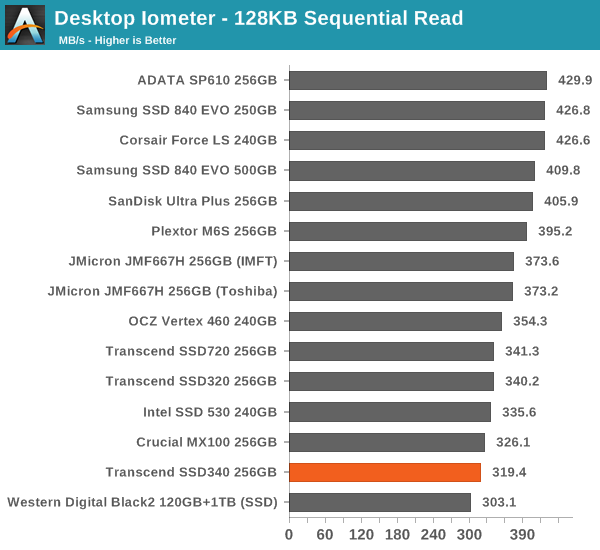
Sequential performance leaves a lot to be desired. Especially write performance is poor for a 256GB drive.
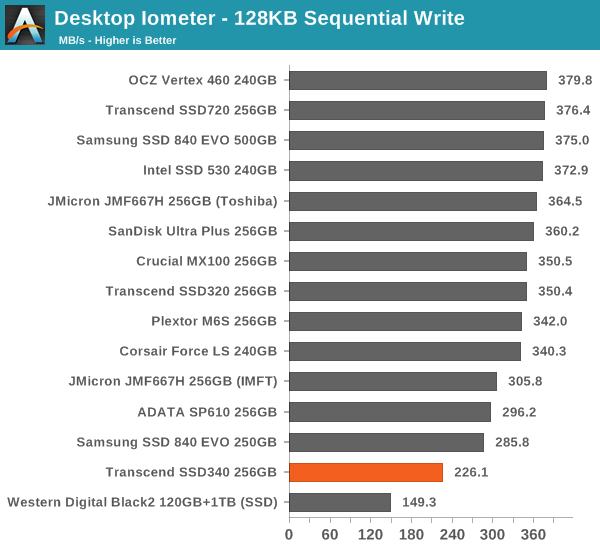
AS-SSD Incompressible Sequential Read/Write Performance
The AS-SSD sequential benchmark uses incompressible data for all of its transfers. The result is a pretty big reduction in sequential write speed on SandForce based controllers.
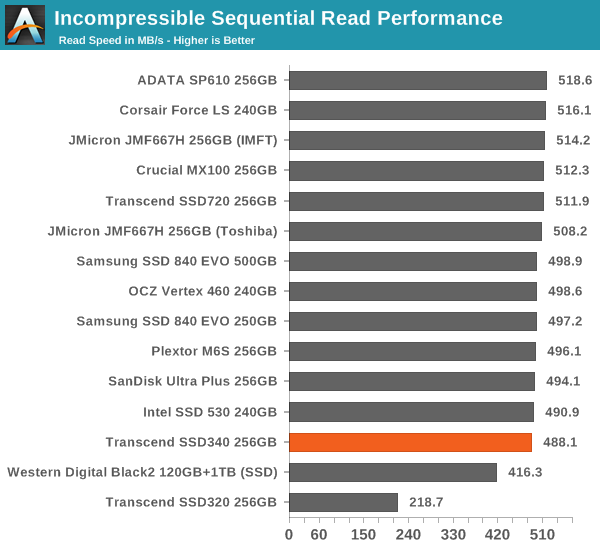
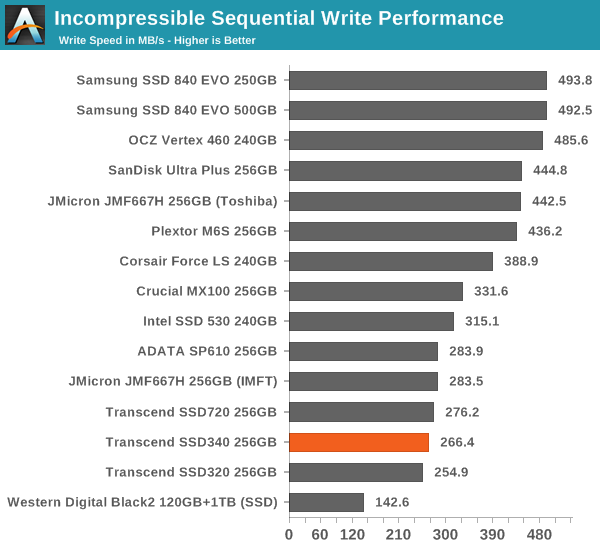










57 Comments
View All Comments
farhadd - Wednesday, August 6, 2014 - link
Newegg recently had the 840 EVO 1TB on sale for $390. So hopefully you'll be seeing that $250 price point by 2016.Tetracycloide - Monday, August 4, 2014 - link
Getting a SSD just because it makes less noise is not going to be a cost effective way to reduce noise for the foreseeable future. Just throw some acoustic foam in the case and use the cheapest gig/$ HDD you can find.Strunf - Monday, August 4, 2014 - link
Just put some RAM on the HTPC and set the torrent client to use a fair amount of it and minimize disk access, SSD for HTPC or torrenting is an overkill... the only real advantage of the SSD is to boot faster anything else wont really benefit from it.Zolcos - Monday, August 4, 2014 - link
Storing all your movies on the HTPC isn't practical imo, at least once you get a sizable collection. HTPCs have high requirements for noise and physical size (great place for SSD) whereas mass storage is all about cost, density, and possibly redundancy (better for HDD). You're better off building a separate file server in another room and having your HTPC play the movies off a network share. A nice big cheap raid set of HDDs will provide enough throughput to saturate your internet upload via torrenting while also having smooth 1080p playback over the LAN.tuxRoller - Monday, August 4, 2014 - link
As others have said you don't need a big ssd to meet your reqs. On Linux you could employ bcache with a small ssd (say, 32gb), and then get a big, slow saucer for bulk.I'd imagine windows offers something similar.
Samus - Monday, August 4, 2014 - link
You should really look at an SSHD for a media center. It won't cache playback of random media files, but it the 7200RPM drives have a sustained read of 150MB/sec and write of 120MB/sec at the outer sector, and the real benefit in an HTPC comes from caching startup/system data and program files. The overall response is very snappy, even SSD like.My 2.5" 1TB and 3.5" 2TB have both been excellent. Among the only Seagate products I've been happy with lately.
TonyCL6 - Thursday, August 7, 2014 - link
Seems like Transcend finally provides the new firmware? http://www.transcendusa.com/Support/No-502ddriver - Monday, August 4, 2014 - link
Too slow on sequential writes, even at its fastest it is as slow as SSDs 2-3 years ago. And 37 mb/sec? What is that? SD cards are faster...MrSpadge - Monday, August 4, 2014 - link
Using the cheaper 128 GBit NAND chips means you can only use 2 of them in parallel for 32 GB capacity.hojnikb - Monday, August 4, 2014 - link
i don' think any value 32GB sd card tops 37MB/s WRITE.And random write it will destroy pretty much every sd card you can throw at it.